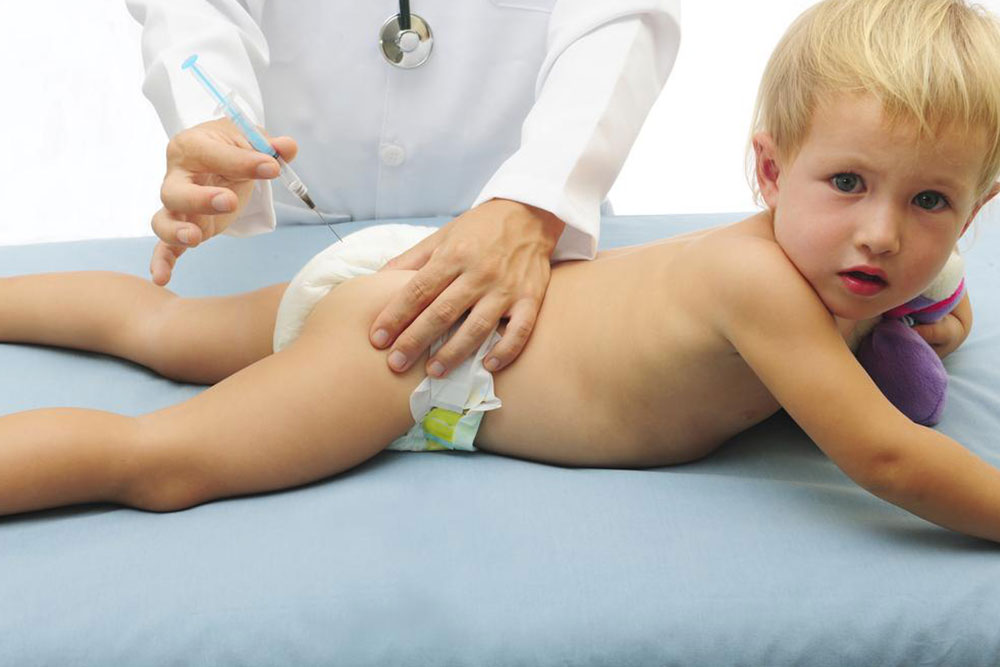Comprehensive Strategies to Relieve Baby Gas and Ease Discomfort
This comprehensive guide offers effective methods to relieve baby gas and manage digestive discomfort. It highlights signs, causes, and practical solutions such as proper feeding posture, burping, tummy massages, and choosing suitable bottles. Understanding these strategies helps parents ensure their baby stays comfortable and healthy during their early development stages. Always seek medical advice for persistent or severe symptoms to ensure appropriate care.

Comprehensive Strategies to Relieve Baby Gas and Ease Discomfort
New parents often encounter the challenging experience of their infant dealing with digestive discomfort or excessive gas. During their initial year, babies are particularly vulnerable to a range of health issues, with one of the most common being a swollen, gassy tummy. This situation can cause concern and anxiety among parents who want to ensure their child's wellbeing. Understanding the causes and effective solutions for baby gas is essential to promote the comfort and health of your little one.
Babies have developing digestive and intestinal systems that are still maturing, which makes them more susceptible to issues like gas, bloating, and colic. These symptoms often emerge because their gastrointestinal tract is sensitive to new foods and environmental factors. If your baby is experiencing frequent gas episodes, it might be a sign that their digestive system hasn't fully developed yet. Proper management and some simple remedies can significantly alleviate their discomfort.
Relieving baby gas not only alleviates physical distress in your infant but also reduces parental stress by ensuring your baby’s comfort. Simple, effective steps can be integrated into daily routines, but always consult your pediatrician before implementing new remedies to ensure they are suitable for your baby’s specific needs.
Recognizing Signs of Gas in Infants
It's important for parents to identify early symptoms of gas buildup to manage and relieve discomfort efficiently. Typical indicators include:
Burping
Burping is a natural and necessary process for babies to release excess air swallowed during feeding. While some burping after feeding is normal, frequent or forceful burping might indicate that the baby is swallowing too much air, especially if they seem distressed afterward.
Spitting Up
Occasional spitting up after meals is generally normal. It may be caused by overfeeding, feeding too quickly, or the type of formula or breast milk the baby receives. Excess air in the stomach can also contribute to this phenomenon.
Bloating and Abdominal Distension
A swollen or hard abdomen often signifies trapped gas. This condition can cause significant discomfort, and the baby might exhibit signs of pain or stomach cramps. Bloating is an unmistakable sign that the baby’s gastrointestinal system is struggling to process and pass gas efficiently.
Flatulence
Frequent passing of gas through the rectum is a typical response as the body attempts to eliminate excess gases. Persistent flatulence could indicate underlying digestive immaturity or other issues requiring attention.
Unusual and Excessive Crying
When a baby cries for more than three hours per day and this pattern persists over several days, gas discomfort could be a contributing factor. This persistent crying often indicates significant distress due to abdominal pressure.
Restlessness and Sleep Disruption
Gas pain can cause your baby to be unsettled and difficult to soothe, disrupting sleep routines. If your infant appears unusually restless or has trouble settling down, it might be related to intestinal discomfort, warranting further evaluation by a healthcare professional.
Common Causes of Gas in Babies
Gas formation is a normal part of digestion, but certain behaviors and conditions can exacerbate the problem. Understanding these causes can help parents take preventive steps:
Overfeeding
Providing more milk than the baby's small stomach can handle may lead to increased gas production. Adhering to age-appropriate feeding quantities is crucial for minimizing discomfort.
Swallowing Air
Babies tend to swallow air during crying, poor latch during breastfeeding, or improper bottle feeding techniques. Excess air can accumulate in the stomach, leading to bloating and discomfort.
Immature Digestive System
The gastrointestinal system develops gradually, and delayed maturation can cause inefficient digestion, resulting in excess gas and feeding difficulties.
Feeding Technique Errors
Incorrect positioning, such as improper latch during breastfeeding or bottle nipple placement, can increase the risk of air swallowing, making it crucial to ensure proper feeding practices.
Food Allergies and Sensitivities
Sometimes, foods consumed by the mother and passed through breast milk, or certain ingredients in formula, can trigger allergic reactions leading to gas and bowel discomfort in infants.
Effective Strategies for Managing Baby Gas
Being proactive and implementing gentle remedies can greatly improve your baby's comfort and reduce their gas symptoms. Here are proven methods to help manage and prevent baby gas:
Proper Feeding Posture
Position your baby upright during feeding, supporting their head and neck adequately. Maintaining an upright position prevents excessive air from being swallowed and aids digestion. Avoid reclining positions during breastfeeding or bottle-feeding as they promote air entrapment in the stomach.
Using Specialized Bottles and Nipples
Select bottles with soft, naturally fitting nipples designed to reduce air intake. Properly fitted nipples make suckling easier and decrease the amount of air your baby swallows during feeds.
Frequent and Gentle Burping
Burp your baby after every feeding session, whether breastfeeding or bottle feeding. This simple step can help release trapped air, relieving pressure and discomfort in the abdomen.
Create a Calm Feeding Environment
Feeding your baby in a quiet, relaxed setting can minimize stress and prevent overfeeding or hurried feeding. Ensure your baby is not overly hungry or anxious, as these conditions can worsen gas symptoms.
Stomach Massage and Tummy Time
Gentle abdominal massages, following a clockwise motion, can help move gas along the digestive tract and reduce bloating. Combining tummy massages with supervised tummy time can also encourage your baby's gastrointestinal motility.
Maintain Comfort and Warmth
Keeping your baby warm and comfortable during and after feeding can soothe their belly and promote better digestion.
Most infants outgrow frequent gas episodes within the first few months of life. With patience and the right techniques, parents can significantly reduce discomfort and help their baby develop a healthy digestive system. Remember, if gas persists or is accompanied by other symptoms like vomiting, diarrhea, or fever, consult your pediatrician promptly for thorough evaluation and professional guidance.




